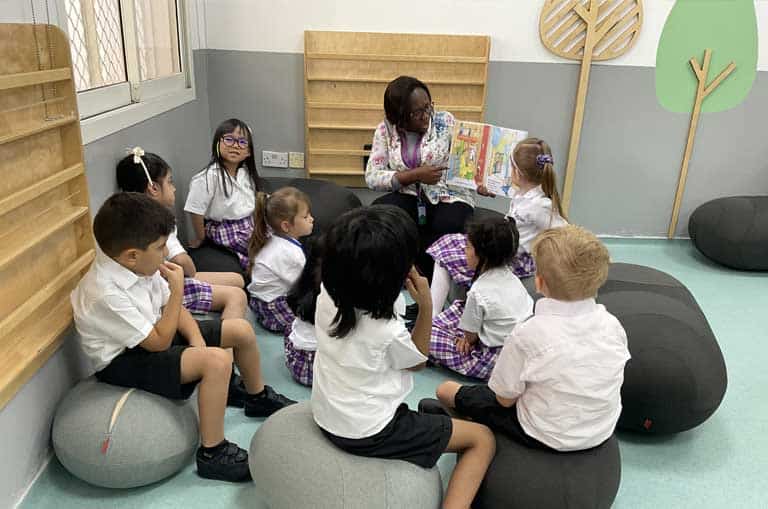We would then demonstrate how to add each item, one by one, to a bowl or a pile until we had added all five items. Later, we would let our child practise the same technique. And we might award ourselves bonus points if the items being counted were silly or fun, such as an assortment of plastic farm animals or the colourful pieces of a board game. This technique is an example of play-based learning, and it’s a critical element of the foundation stage of learning.

What Is the Foundation Stage (FS) of Learning?
The foundation stage of learning involves children of ages 3 to 5. Play-based learning is critical for this age group for many reasons:
- It improves communication skills
- It builds better social skills
- It boosts skills in language development and literacy
- It fosters creativity and imagination
- It creates a positive learning experience for young students
At this age, most students are unable to sit still for long periods. But through play-based learning, they’re able to move about and interact with each other, with their educator and with the classroom in an organised way. The necessary concepts are being taught, but the instruction feels like something other than schoolwork. Instead, it is fun and engaging.
Students in this stage of development are ready for new challenges. They’re learning to be more independent, and they enjoy the opportunity to learn new things. As such, they need a curriculum that is able to meet them at this very important crossroads.
Play-Based Learning at the Glendale Group of Schools
The Glendale Group of Schools uses a play-based curriculum throughout its early childhood programme. Classrooms are colourful and hands-on, and educators are specially trained in the art of teaching very young children. As a result, student engagement is high, meaning our youngest pupils enjoy the stimulation of the classroom and are eager to return each day.
Glendale Schools follow a holistic pedagogy, and learning is designed to be enjoyable. We’re building character and competence and cultivating the 21st-century skills students need to be successful in today’s global world, even in our earliest learners.

Explore Glendale Schools Today
Families with young children who are searching for the right early childhood programme are invited to explore Glendale International School in Dubai. Glendale International School offers the National Curriculum for England, or NCfE, which focuses on a core understanding of the subjects and the development of 21st-century skills. Students who attend Glendale receive a well-rounded education that aims to build upon all facets of their development, including academic, emotional, physical and social, even at the early-learning level.
For more information on enrolment at Glendale International School in Dubai, contact an admission advisor today.





